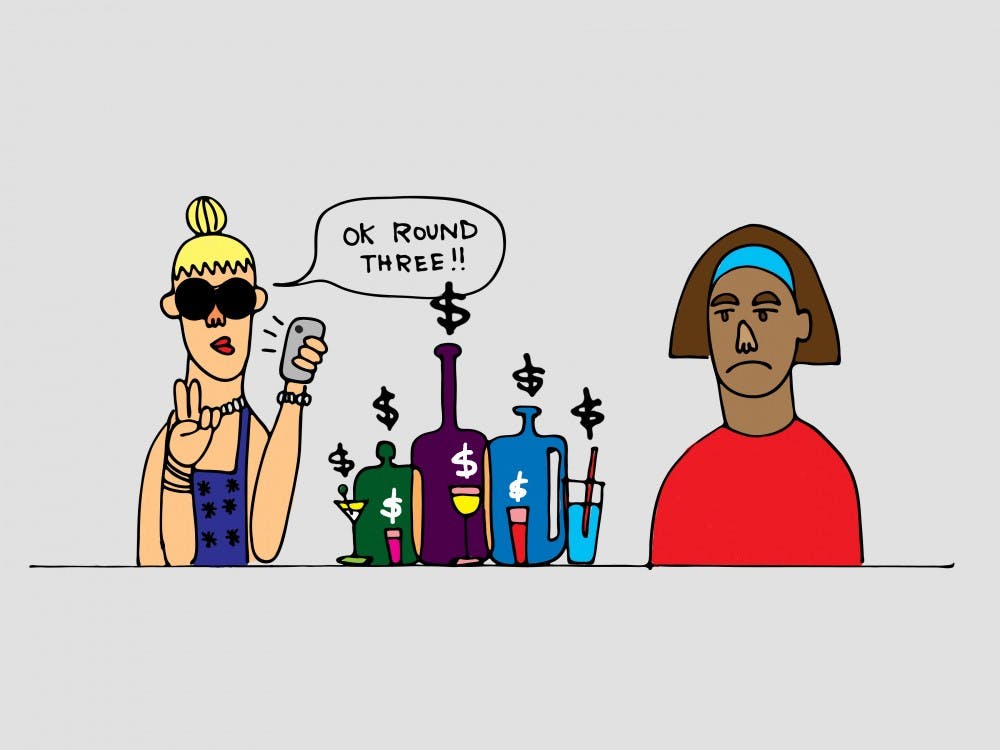ASU has performed studies focused on parental roles, peer influences and environmental conditions, but has never thought to link these social factors to health risk behaviors and those behaviors' effects on diseases among college students.
Students and faculty in ASU's School of Human Evolution and Social Change combined their efforts with the Simon A. Levin Mathematical, Computational and Modeling Sciences Center to create a study linking health and social sciences, the first of its kind.
Anuj Mubayi, co-director in the Mathematical Theoretical Biology Institute and assistant professor of applied mathematics at ASU, worked on chapter 10 of the 36th volume of the Handbook of Statistics. The chapter is a synthesis of the literature about anthropological undergraduate surveys, and introduces ways for social scientists to calculate mathematical models regarding this research.
“(This chapter is) on influence,” Mubayi said. "So, what it is saying is, 'how are the health decisions ... guided by the social mechanisms, — like type of friends, parental roles in it (and) role of environment in the school or in the college.”
Mubayi provided an example of this with students who take part in Greek life, and how they are more likely than other students to drink alcohol. Even if they attend a Greek life event that doesn’t directly involve alcohol, these events in part contribute to the unhealthy activities Greek students engage in, Mubayi said.
“I have not seen any study that has characterized these club activities based on health risks associated with it, so that’s the novel part in that,” Mubayi said.
These college-oriented activities can lead to health risk behaviors, which in turn influence the chances of a person developing chronic diseases. Examples of health risk behaviors include obesity, lack of exercise, smoking habits and alcohol abuse.
Mubayi and other scientists are eager to inform the public on where these health risk behaviors arise.
Health risk behaviors occur all over the world and for many different reasons. The health risk behaviors of college students look different from the behaviors of a rural, poverty-stricken population.
Mugdha Thakur, a graduate student in ASU's School of Human Evolution and Social Change, focuses on the health-seeking behaviors of patients suffering from visceral leishmaniasis in the Bihar state of India.
The individuals afflicted with this disease are not seeking treatment. This is due to factors such as low household income and far proximity to the health care facility, Thakur said.
Victor Moreno, a graduate student studying applied mathematics for the life and social sciences, observed Twitter users’ accounts to find where people first mention alcohol, and how their references to alcohol increased over time.
“I was developing the particular key words that were going to be used as something to determine if people were actually drinking or not,” Moreno said.
He helped choose a list of 60 words believed to carry the most weight in terms of explicit, real-life alcohol abuse.
Simply put, the study converts qualitative data to quantitative data.
“We do mathematical equations to learn real life problems and draw conclusions based on it," Mubayi said. "We are skilled in applied mathematical methods. To build these models, you need the data … So what we are doing now is literally going into the field and measuring the statistical data for that reason."
Chapter 10 in the study is unique for a health scientist – it looks at these risk behaviors and draws important conclusions regarding the contraction of various chronic and infectious diseases. This data could influence the way in which college students are educated on health risk behaviors in the future.
“If you are behaving in unhealthy activities, then your immune response is more likely to be repressed, then you are more likely to get diseases,” Mubayi said. “Not only that you will get it, but if you get it, you will infect more people.”
Reach the reporter at dsimari@asu.edu or follow @daniellasimari on Twitter.
Like State Press on Facebook and follow @statepress on Twitter.




